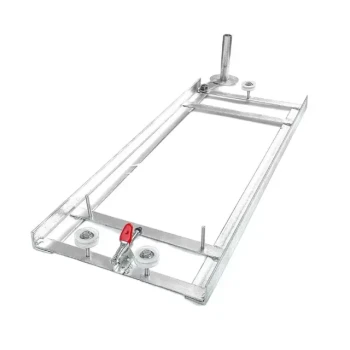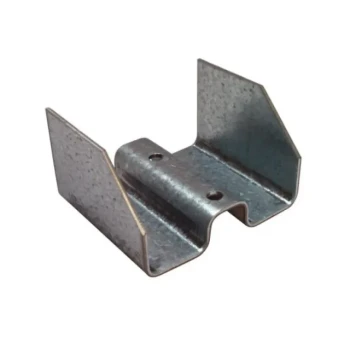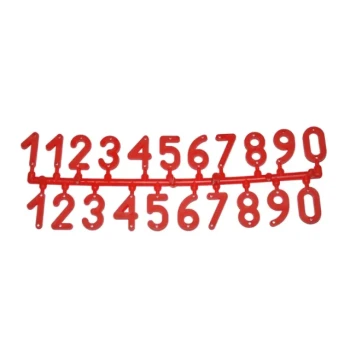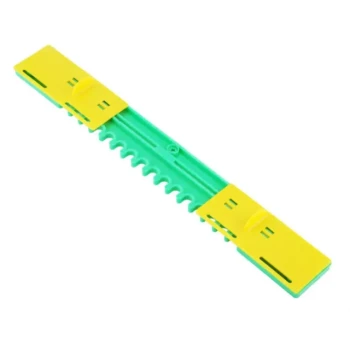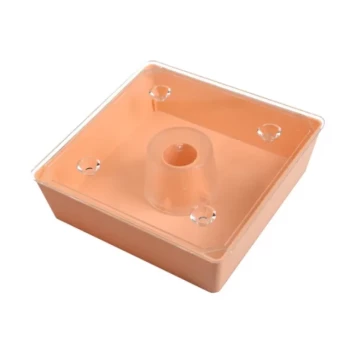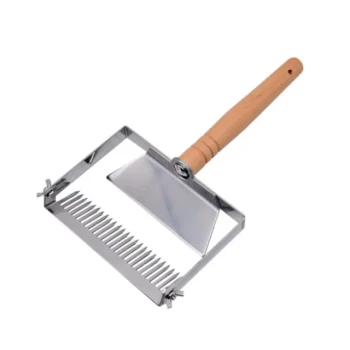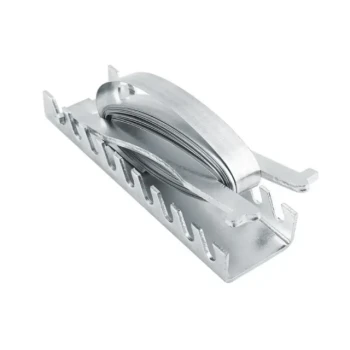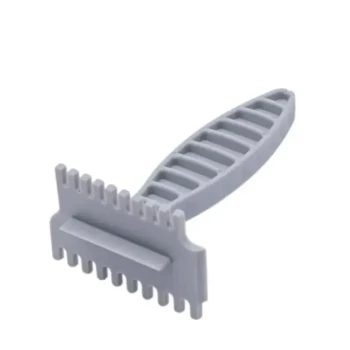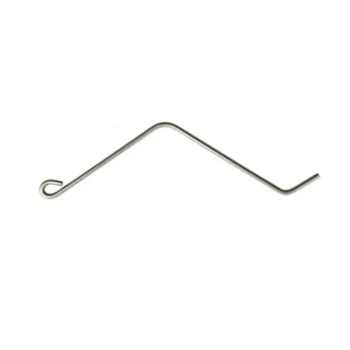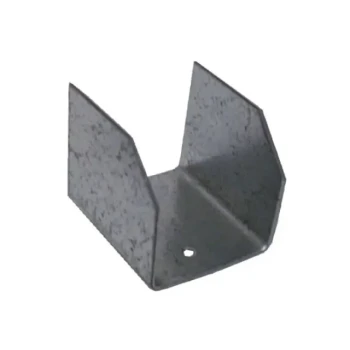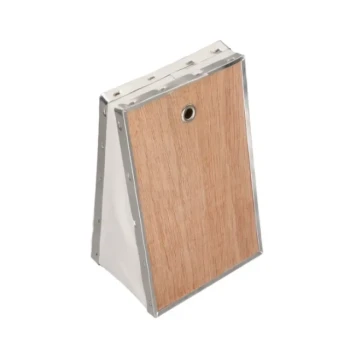To significantly prolong the lifespan of your beehive frames, you must adopt a proactive maintenance strategy centered on regular inspections, prompt repairs, and material-specific care. For wooden frames, this means using food-safe wood protectants to prevent rot and warping. For plastic frames, it involves cleaning with gentle, non-toxic solutions to preserve their integrity without harming the colony.
The core principle of frame maintenance is shifting from a reactive "fix it when it breaks" mindset to a proactive one. This not only saves money on equipment but is fundamental to protecting hive health and ensuring smooth, efficient apiary operations.
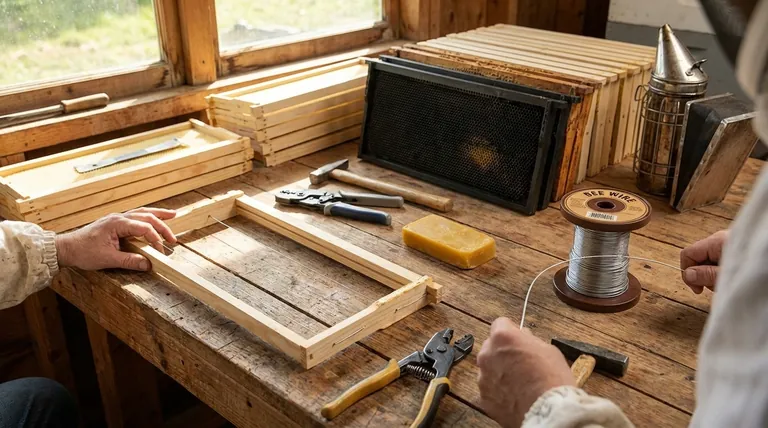
The Foundation: Proactive Inspection and Repair
Your frames are the internal skeleton of the hive. Their structural integrity is not a trivial matter; it is essential for the colony's stability and your ability to manage it effectively.
The Importance of Regular Checks
Regular inspections are your first line of defense against premature frame failure. Each time you open the hive is an opportunity to quickly assess the condition of the frames you handle.
Look for signs of wear and tear, such as splitting wood, cracked plastic, or foundation that is sagging or pulling away from the frame. Early detection is key.
Why Prompt Replacement Matters
A damaged component should be replaced or repaired immediately. A weakened frame can easily break during a hive inspection or, more critically, inside a honey extractor.
This failure creates a significant mess, stresses the colony, and results in lost time and honey. Investing in a timely repair prevents a much larger problem down the road.
Material-Specific Maintenance: Wood vs. Plastic
The two most common frame materials, wood and plastic, have distinct maintenance needs. Treating them appropriately is crucial for maximizing their service life.
Caring for Wooden Frames
Wood is the traditional choice, but it is susceptible to moisture, which leads to rot and warping.
To protect them, treat new wooden frames with a food-safe wood protectant, such as 100% pure tung oil or even a dip in hot beeswax. This creates a barrier against moisture.
Between hive cycles, be sure to thoroughly clean old comb and propolis from the frames before storing or reusing them.
Caring for Plastic Frames
Plastic frames are valued for their durability and resistance to rot. Their primary maintenance need is proper cleaning.
Use a gentle solution of soap and water to scrub away wax and propolis. Avoid harsh chemical cleaners, as residues can be harmful to your bees. A pressure washer on a low setting can also be effective for tough jobs.
Understanding the Trade-offs
Choosing and maintaining frames involves balancing durability, cost, and the preferences of your bees. There is no single "best" option, only the best option for your specific goals.
Durability vs. Natural Appeal
Plastic frames are undeniably more durable and less prone to breakage during extraction. They are a long-term investment that requires minimal preventative care beyond cleaning.
Wooden frames, however, are often preferred by beekeepers who prioritize a natural hive environment. Bees also tend to draw out comb on wax-coated wooden foundation more readily than on new plastic.
The Risk of Disease and Pests
Proper maintenance is also a biosecurity measure. Old, uncleaned frames can harbor pests like wax moth larvae or pathogens like American Foulbrood spores.
Regardless of material, a key part of maintenance is culling and rotating out old frames (typically every 3-5 years) to ensure the hive remains clean and healthy. Damaged frames provide hiding spots for pests and should be prioritized for replacement.
How to Apply This to Your Apiary
Your approach to frame maintenance should align with your beekeeping philosophy and operational scale.
- If your primary focus is maximum durability and efficiency: Opt for plastic frames and implement a rigorous cleaning schedule between uses.
- If your primary focus is natural beekeeping: Use wooden frames, treat them with beeswax or tung oil before their first use, and be diligent about culling old, dark comb.
- If you are managing a large-scale operation: A combination may be best, using durable plastic frames in honey supers for extraction and wooden frames in the brood box.
Ultimately, viewing your frames as a critical, long-term asset is the most important step you can take toward their preservation.
Summary Table:
| Maintenance Aspect | Key Action | Benefit |
|---|---|---|
| Inspection | Regular checks for splits, cracks, or sagging | Early problem detection, prevents major failures |
| Wooden Frames | Apply food-safe protectants (tung oil, beeswax) | Prevents rot and warping from moisture |
| Plastic Frames | Clean with gentle, non-toxic soap and water | Preserves material integrity without harming bees |
| General Care | Promptly repair/replace damaged frames; cull old comb every 3-5 years | Ensures colony stability and prevents disease/pests |
Ready to build a more durable and efficient apiary?
As a trusted wholesale supplier to commercial apiaries and beekeeping equipment distributors, HONESTBEE provides the high-quality, long-lasting frames and beekeeping supplies your operation depends on. Our products are designed to withstand the rigors of professional use, helping you implement the proactive maintenance strategies outlined above.
Let us help you protect your investment and ensure your colonies thrive. Contact HONESTBEE today to discuss your wholesale needs and discover how our equipment can contribute to your success.
Visual Guide
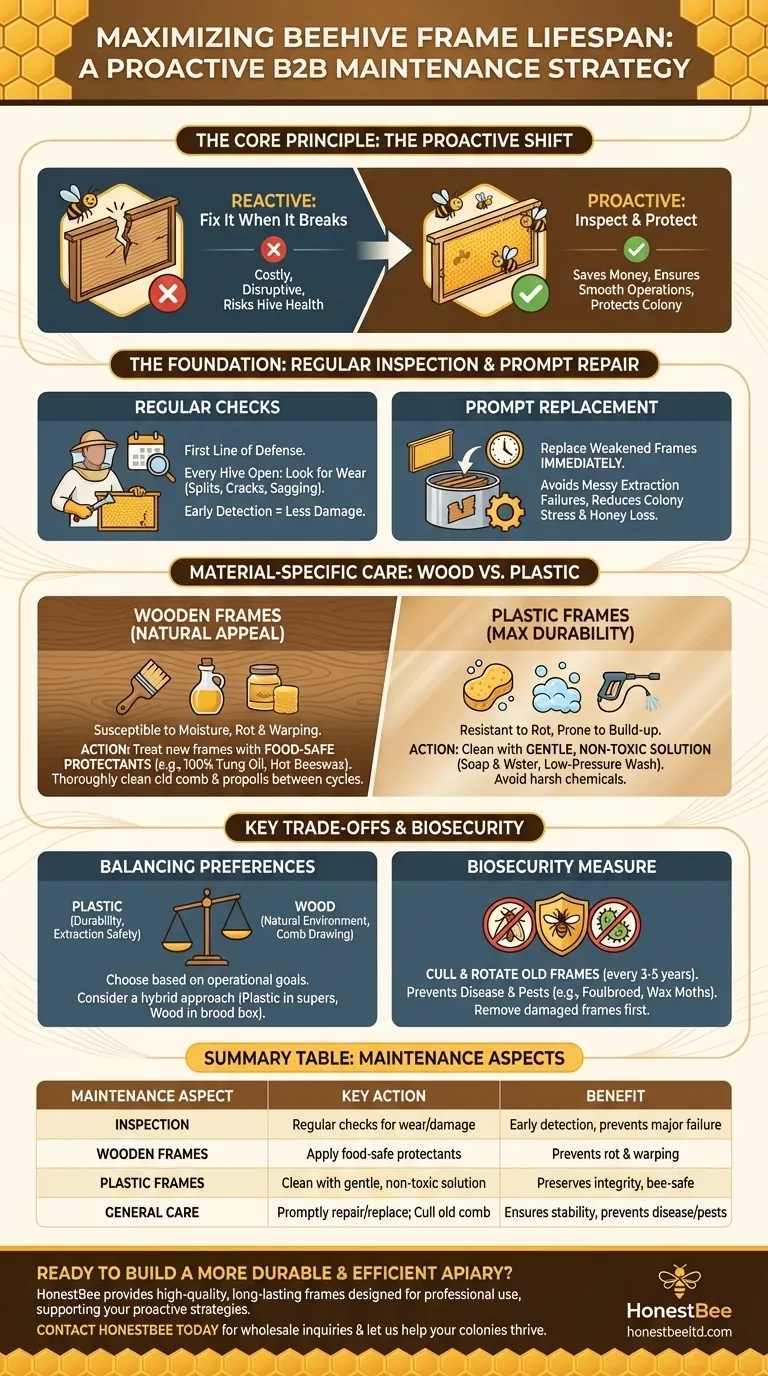
Related Products
- Stainless Steel Bee Hive Frame Wire for Beekeeping
- HONESTBEE Professional Frame Wiring Board and Jig
- Professional Galvanized Hive Strap with Secure Locking Buckle for Beekeeping
- Heavy-Duty Galvanized Steel W-Style Pallet Clip
- Durable Plastic Hive Number Set for Beekeeping
People Also Ask
- What role do vertical steel wires play in the reinforcement of beehive frames? Enhance Hive Stability & Quality Control
- Why is stainless steel frame wire recommended over galvanized wire? Ensure Honey Purity and Prevent Lead Contamination
- What specific type of hardware is used as a tie-off point for wire in beekeeping frames? Using 11/16 Inch Nails
- What role does High-Strength Wire play in the assembly of commercial beehives? Enhance Stability and Profitability
- How does cross-wiring differ from standard wiring? A Guide to Choosing the Right Support for Your Hive Frames

